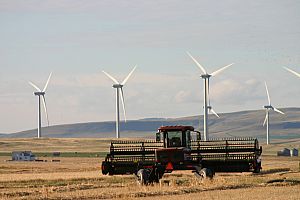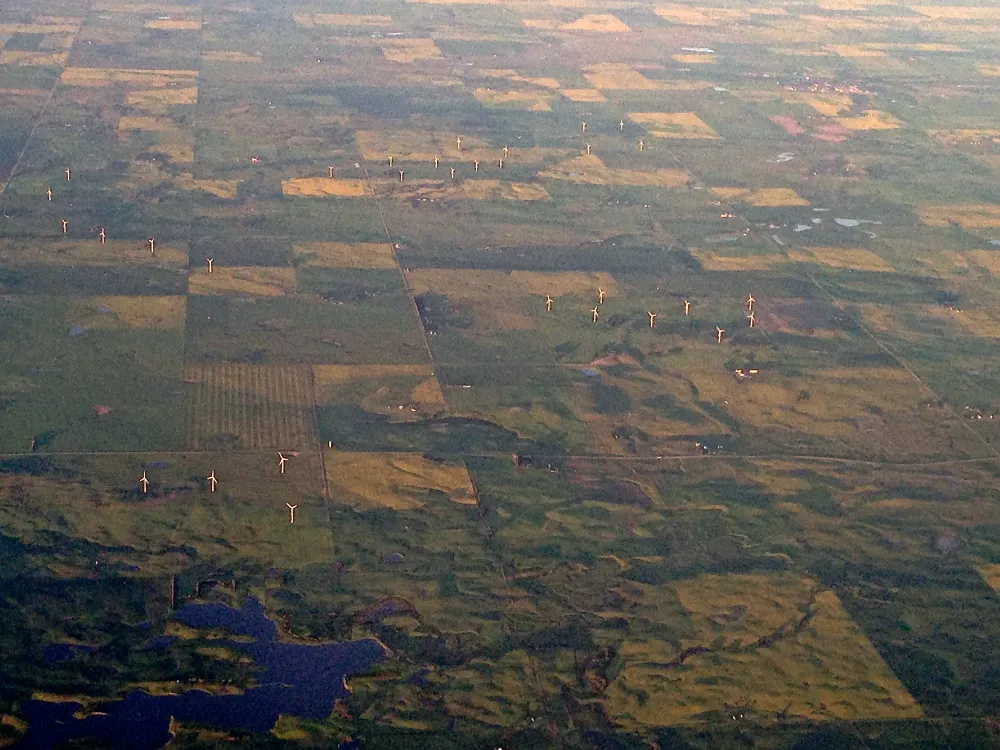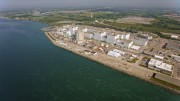No other province in Canada has a longer history with wind energy than Alberta, which has 20 years of experience with utility-scale wind farms. Yet, unlike some parts of the country, we don’t tend to hear much about it, so my colleagues and I wondered whether, in fact, we were just missing something. There hasn’t been much research into this issue to date, so we set out to discover what sorts of complaints officials in Alberta have received about wind energy projects from nearby residents.
At the Pembina Institute, we’ve done the math, and to get to a low-carbon future, wind energy is one technology that we are going to need more of. While it isn’t a silver bullet, wind energy is a cost-effective way of displacing highly polluting sources of electricity, which are particularly common and damaging in Alberta.
But we also know that wind energy development needs to be done properly, taking into account local impacts and residents’ concerns (and revenue opportunities), a balance we’ve explored in our past work on the topic. By examining the nature of complaints about wind power in the province, we hoped to determine what improvements might be made.
Few complaints reported
We’ve just released a summary of our research. As it turns out, there isn’t much to report — at least with respect to operating wind farms. We heard that wind projects attract notable concern when they’re undergoing permitting; and some have also drawn complaints during construction (including mostly road impacts and congestion, as well as dust problems). But very few complaints have come in about operating turbines.
To be clear: this research was not a comprehensive effort to take the pulse of rural attitudes toward wind energy. It provides an objective indicator of whether or not Albertans register many complaints with officials about operating wind turbines. And they do not. But this cannot prove whether Albertans support or oppose wind energy.
It does, however, align with a recent study published by researchers at the University of Western Ontario, which found that residents in a community without wind turbines but with a proposed wind energy project were less supportive of wind energy development and more concerned about negative impacts than a community with turbines nearby. Those findings might help to explain why so many more concerns are reported prior to a project’s operation, compared to once projects are up and running, as our research found.
What we did
 Our approach was pretty straightforward. First, we identified the most likely places that people would bring complaints if and when they have them:
Our approach was pretty straightforward. First, we identified the most likely places that people would bring complaints if and when they have them:
- the Alberta Utilities Commission (AUC), the quasi-judicial, arms’-length regulator for the electricity sector;
- operators of existing wind energy projects;
- municipalities (municipal districts and counties) where operating wind energy projects are located;
- local and provincial health authorities; and
- municipal agricultural fieldmen.
Second, we surveyed these institutions by interviewing staff members that could speak to or review documentation of any complaints received. We asked them about the number and nature of complaints.
What we found
As mentioned above, our research turned up very few complaints about operating wind projects.
Perhaps most strikingly, we found that no complaints about utility-scale wind energy have been brought to the AUC — not a single one. There were 31,000 contacts from the public to the AUC about a variety of issues in their 13-year-old database, but none of them were complaints about wind energy. In fact of the 170 contacts (calls, emails, letters) that the AUC received that did reference wind energy, more than half were from individuals wanting to know how to set up their own wind energy generation. Another quarter of those referencing wind power were about proposed (not operating) wind energy projects. One was a complaint about noise from a small-scale wind turbine in a public place.
Other contacts relating to “noise” (45 in total) were mostly about non-wind electric utilities and other projects like oil and gas operations—even though the AUC has no jurisdiction over oil and gas. So, we also went to the regulator for oil and gas projects, as a comparator, where we found an average of 819 concerns reported per year to the ERCB about wells, facilities and pipelines.
Altogether, the AUC told us, “When you look at the volume of contacts we’ve received since 2000, we really don’t see complaints about wind farms.”"When you look at the volume of contacts we’ve received since 2000, we really don’t see complaints about wind farms." — Alberta Utilities Commission
The operators of the wind farms did report some complaints during operations, noting eight unique complaints, most of which were resolved noise complaints (five), along with a few generalized complaints about wind energy broadly.
Only three complaints about operating wind farms came to the seven Alberta municipalities with wind energy projects: one about ice throw that was investigated and dismissed, one about the density of wind turbines offering a terrorism opportunity, and one about noise, which was referred to the operator.
No more complaints were found with the health contacts surveyed (two regional health inspectors covering municipal districts with over half of Alberta’s wind energy) or the livestock contacts (five agricultural fieldmen also covering the majority of the experience).
More research needed
Ultimately, more research would be valuable to determine practices that operators or authorities have used to mitigate concerns that residents may have about wind development, but that were not captured as official complaints.
From our research, however, it’s apparent there is no deluge of official concerns about operating wind energy projects in Alberta. As such, it points in the direction of a relatively well-integrated energy source in the agricultural and energy development fabric in rural Alberta.
It also shows there may be room to improve construction practices and public education around proposed wind energy projects. Examining case studies in Alberta and elsewhere could help to determine best practices for future wind development.









